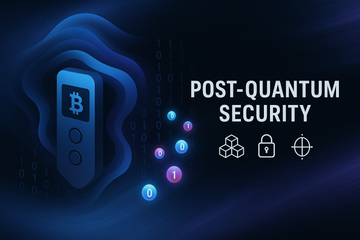Picture this: your favorite crypto wallet, like a Trezor or Ledger, safely tucked away in a desk drawer, protecting your digital treasures. Now imagine waking up one day to a flurry of headlines whispering about 'quantum computers' threatening the backbone of crypto security. Sounds like a scene from a sci-fi movie, right? Actually, this story is very real, and it’s unfolding faster than most folks realize.
So What the Heck is Quantum Computing Anyway?
Let’s set the jargon aside for a second. Most of us grew up with regular computers that just kind of flip really fast between on and off—binary, really. But quantum computers? They're like that genius friend who thinks in colors and sees six possible chess moves before you’ve blinked. At their heart, quantum computers use qubits. A qubit doesn’t settle for simple on/off. Thanks to a trick called superposition, it can be not only this or that, but a wild combo of both at the same time (IBM).
Then there’s entanglement—another quantum coup—where two qubits join forces, sharing information instantly no matter the distance. It’s like Ledger and Trezor wallets chatting across continents, syncing secrets at a speed that would make WhatsApp jealous. I know, it sounds bonkers. But physicists have not only imagined it; they’ve observed it in labs.
Comparing Quantum to Classic—Like Comparing a Sleigh Dog to a Space Rocket
Your current hardware wallet depends on vigorous, mathematical locks and keys. Standard computers try every possible combination—a digital brute-force, steady but slow. Quantum computers, on the other hand, play multi-dimensional chess. They explore zillions of routes at once. For some problems, like factoring gigantic prime numbers (the backbone of crypto private keys), it’s the difference between searching a haystack for a needle versus watching the whole haystack become transparent.
Are We Talking Crypto Apocalypse?
Okay, don’t reach for the panic button just yet. Quantum computers aren’t sitting in garages, cracking Bitcoin wallets overnight. The technology’s still experimental and error-prone. But smart folks are hustling, making serious progress. For instance, recent research teams have crafted '2D quantum simulators' that mimic complex systems, pushing boundaries in both physics and engineering (Phys.org).
Industry giants like IonQ are scooping up tech companies to fuel this leap, suggesting we’re inching from science fair marvel to commercial reality (Morningstar).
But What’s in It for the Everyday Crypto Buff?
Here’s the fascinating twist. Quantum computing could unlock solutions to headaches that even the best classical computers grumble about, like:
- Supercharging transaction validation: Imagine lowering network fees because your nodes process complex blocks faster.
- Better modeling & risk analysis: Wouldn’t it be sweet to forecast price swings with uncanny precision?
- Secure, quantum-resistant cryptography: The crypto industry is already prepping for a new era. That brings us to...
Security: Post-Quantum - Crypto’s Next Evolution
Honestly, here’s where things get both exciting and nerve-wracking. Quantum computers may eventually blitz through today’s encryption (think RSA & ECDSA). That means your Ledger's private keys are safer than a buried pirate chest—for now. But after 'Q-Day'—the moment quantum computers hit the right speed—those locks could become glass doors (TechXplore).
The bright side? The crypto community’s already building tougher locks: post-quantum encryption. These next-gen schemes use different kinds of math and even physics tricks, making them tough customers even for quantum hackers. The National Institute of Standards and Technology (NIST) is already standardizing fresh algorithms. Hardware wallet makers like Trezor and Ledger are, unsurprisingly, keeping a wary eye on this trend and preparing firmware upgrades.
Quantum Progress: A Marathon, Not a Sprint
If you’re picturing armies of quantum machines raiding the blockchain next year, pause for a reality check. As promising as quantum breakthroughs are—like those swanky simulators and acquisitions—they’re still hamstrung by reliability snags. Qubits are sensitive little things, easily rattled by the tiniest disturbance—kind of like spilling coffee over your laptop, except it happens at the atomic level. Researchers are chasing improved error correction with the same gusto as football fans at a playoff game, but true stability is still on the horizon (IBM).
Should You Be Worried, or Excited?
I’ll be honest, it’s a cocktail of both. Quantum computing, left unchecked, could someday threaten core crypto principles. On the flip side, it could give rise to untold innovation—blockchains that heal themselves, tokens whose metadata morphs on the fly, maybe even financial models that see booms before the headlines do.
But for now? Chill. Keep your wallets updated, watch for firmware notices from the Ledger and Trezor teams, and stay curious. The quantum age won’t sneak up on you overnight—but when it does arrive, the crypto crowd will be the first to know.
Wrapping Up: Quantum Isn’t Coming to Steal Your Coins just Yet
Quantum computing is explosive and unpredictable, sure, but it’s also a golden opportunity. Just as hardware wallets transformed how we guard digital coins, post-quantum cryptography and new blockchain models will change the crypto landscape again. Stay alert, stay skeptical—and every once in a while, peek into those quantum research updates. Who knows? The next big whitepaper might land before you finish your next block confirmation.











